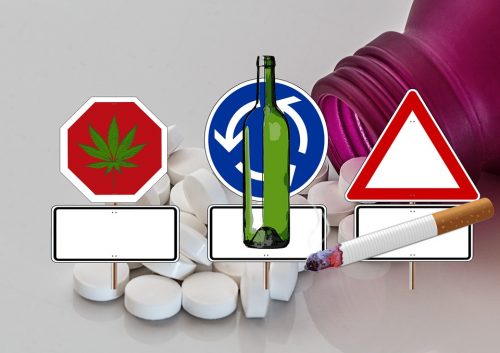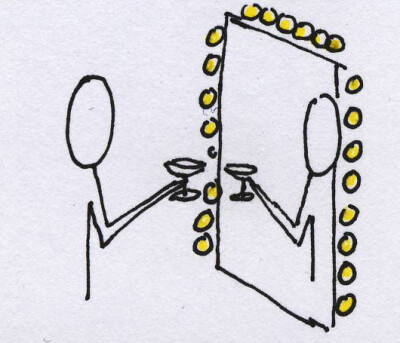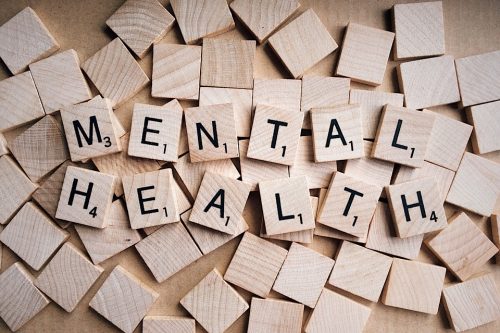Cognitive Behavior Therapy For Addiction
Are you struggling with addiction and needing therapy? The availability of drugs, narcotics, cigarettes, and alcohol all over the world has made it easier for many individuals to suffer from substance addiction. When a person becomes dependent on certain substances or items, it becomes difficult on his part to quit vices.

Source: pixabay.com
Understanding The Relationship Between Addiction And Therapy
However, this does not indicate that it is not possible at all. With proper guidance and assistance from counselors, individuals may recover through Addiction Cognitive Behavioral Therapy. Cognitive behavioral therapy is one of many disorder treatments you can look into when addressing addiction. Let’s learn more about the effective treatment here in this article.
Cognitive behavioral therapy for addiction is among many types of clinical psychology counseling. From its name, it can be implied that cognitive behavioral therapy focuses on looking into how the actions of individuals or negative thought patterns are involved. Its primary goal is to change the individual’s maladaptive thinking or behavioral expression to get over substance addiction and start treating depression, adolescent substance abuse, maladaptive behavioral patterns, addictive behaviors, and other mental health disorders that impacts a pleasant activity schedule.
“Since a high percentage of people we see in our practice is dealing with some anxiety (social anxiety, health or illness anxiety, etc.), being able to gently challenge people to face their fears and develop new ways of relating to their own thoughts is a central part of the work,” Martin Hsia, PsyD, says. “Cognitive behavioral therapy gives us the tools to encourage people to do something highly unpleasant: confront the things they have been avoiding.”
How Cognitive Behavioral Therapies For Addiction Help Manage Challenges

Source: flickr.com
Only counselors can perform techniques and methods under the cognitive-behavioral therapy approach. One fundamental principle is that engagement by patients and counselors depends on the severity of the addiction. It can be five months up to ten months or even longer.
According to the American addiction centers, individuals who are suffering from substance abuse are required to attend cognitive behavior therapy for addiction, which is usually scheduled once a week. Addiction counselors will help and enhance motivation in individuals examine different processes and how it affects how the person acts.
Ben Martin, PsyD, said, “During this time, the client and therapist are working together to understand what the problems are and develop new strategies for tackling them. Cognitive behavioral therapy introduces patients to a set of principles that they can apply whenever they need to, and that’ll last them a lifetime.”
Cognitive Behavioral Therapy – Addiction Treatment
Cognitive behavioral therapy (CBT) has proven to be an effective way of helping individuals recover from addictive disorder. This method is also useful for relapse prevention in recovering individuals who once dealt with substance misuse and drug and alcohol dependence. Because of this, it is proper to conclude that cognitive therapy is indeed essential in dealing with the cognitive distortions and mental problems of several people.
Therapy for Addiction: Cognitive Behavioral Therapy

Source: pixabay.com
Is Cognitive Behavioral Therapy Treatment Really That Important For People With Substance Abuse?
If you believe that you need a counselor to get over substance use disorders, cognitive behavioral interventions are perfect for cognitive behavioral treatment and the Affordable Care Act, according to the Mental Health Services Administration. Quitting the use of drugs or narcotics is difficult, most importantly if you find comfort in doing it. However, it is now time to regain clarity in your life. Be sure to find your preferred counselor who could make you understand why you can’t control your use of prohibited substances. Let that professional know that you are more than willing to participate in sessions that are meant for treating mental psychological disorders or other mental health conditions and common co-occurring disorders like anxiety disorders, mood disorders, eating disorders, bipolar disorder, drug addiction, drug and alcohol abuse, substance use disorders.
“Given that CBT can be a more direct style of therapy, it may not feel helpful for someone seeking that kind of deep, relational work. Having said that, many skilled [cognitive behavioral] therapists who practice cognitive behavioral therapy are very flexible and can adjust to meet the needs of a variety of clients,” wrote licensed clinical therapist Ryan Howes, Ph.D., ABPP.
Insights And Takeaways
When it comes to Beck Institute or National Institute on Drug Abuse treatments and meta-analyses, the first thing that you need to be aware of to stay sober is the fact that cognitive-behavioral strategies and treatment providers help only work if you will cooperate. You cannot expect counselors to do all your heavy work and give you all the coping skills training to reduce negative thoughts, boost positive emotions, and take away painful memories or painful thoughts or automatic thoughts about past experiences. Instead, make an effort to appear during your sessions and objective evidence treatment. Moreover, try to be honest at all times whenever you are communicating with your counselor. As long as you know how to find counselors who specialize in CBT techniques, you are good to go.
Cognitive Behavioral Therapy FAQs
How Does The Cognitive Approach Explain How To Treat Addiction?
The cognitive approach to addiction treatment focuses on identifying and challenging distorted beliefs and thought patterns related to substance use. It involves cognitive restructuring to replace irrational beliefs with rational ones, developing coping strategies to manage cravings and triggers, and building self-efficacy to resist substance use. This approach also addresses underlying psychological issues and emphasizes relapse prevention.
What techniques are used to treat substance abuse?
Substance abuse treatment integrates diverse techniques such as Cognitive Behavioral Therapy CBT, Motivational Interviewing (MI), contingency management, 12-Step Programs, Medication-Assisted Treatment (MAT), holistic therapies, family therapy, dual diagnosis treatment, peer support, and mental health education. These approaches collectively combat addiction and promote lasting recovery.
Which psychotherapy is most effective for substance dependence?
What Is The Most Effective Intervention For Substance Abuse If Online Therapy Doesn’t Help With Addiction Recovery?
If online therapy doesn’t prove effective for addiction recovery, there are several alternative interventions to explore. The most effective approach may vary from person to person, but options include in-person therapy with a licensed counselor, residential or outpatient treatment programs, support groups like AA or NA, medication-assisted treatment, family therapy, holistic approaches, specialized treatment centers, and long-term aftercare programs. The choice of intervention depends on individual needs, the severity of drug addiction or alcohol addiction, and co-occurring issues. It’s important to seek guidance from healthcare professionals to determine the most suitable treatment plan.
What Is A Treatment Plan For Substance Use Treatment?
What Are Three Options For Drug Abuse Treatment Centers?
How can we prevent addiction through behavioral experiments?
What are the six components of addiction?
How does cognitive behavioral therapy for addiction work?
What are examples of cognitive behavioral therapy interventions?
What is the first phase of CBT? Who needs cognitive behavioral therapy?
What are the benefits of cognitive behavioral therapy?
What happens during a CBT session?
How long does CBT therapy last?
What questions are asked in cognitive behavioral therapy?




 Source: pexels.com
Source: pexels.com







Recent Comments